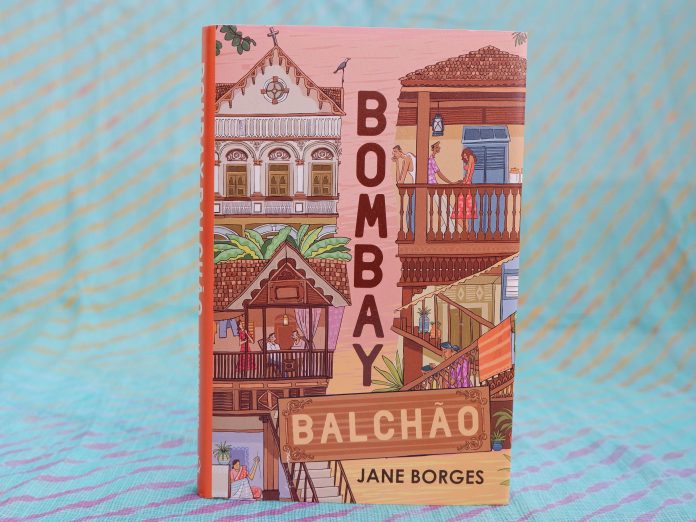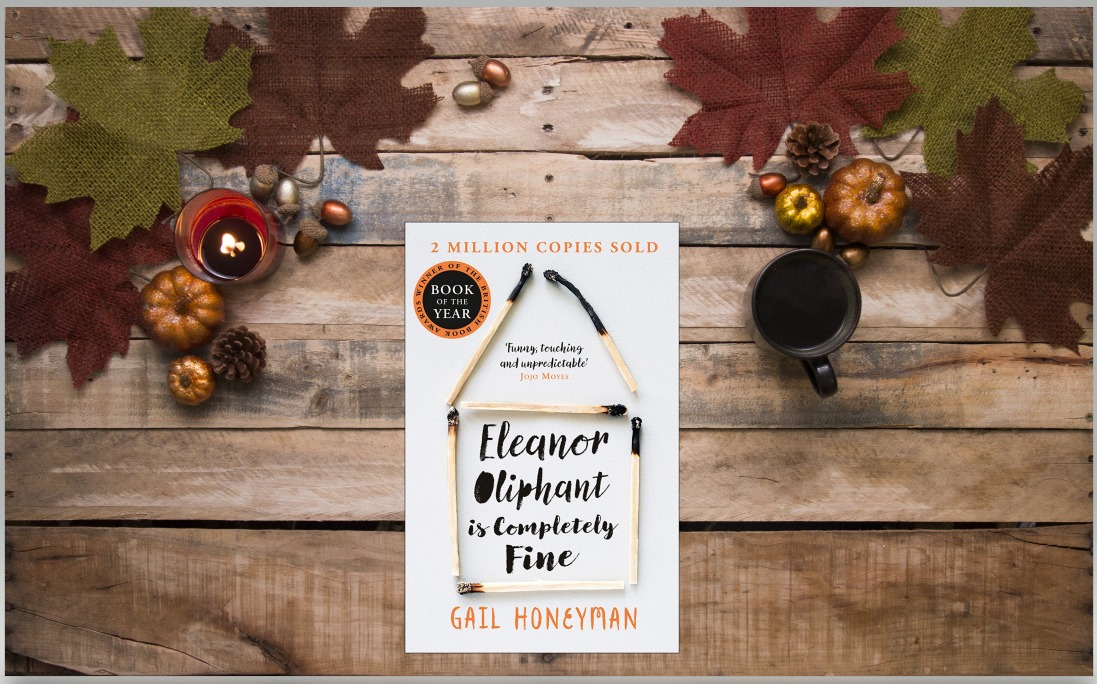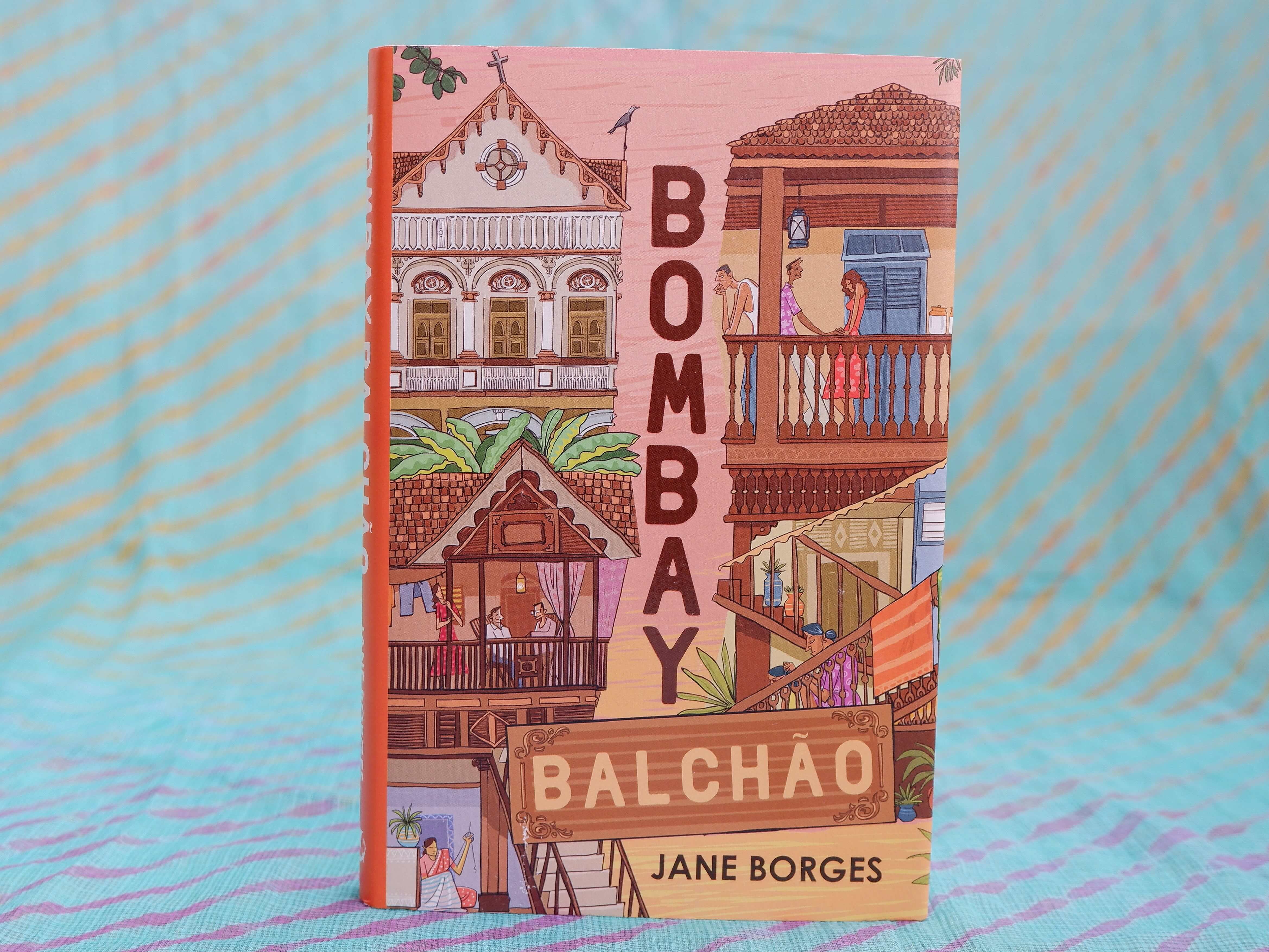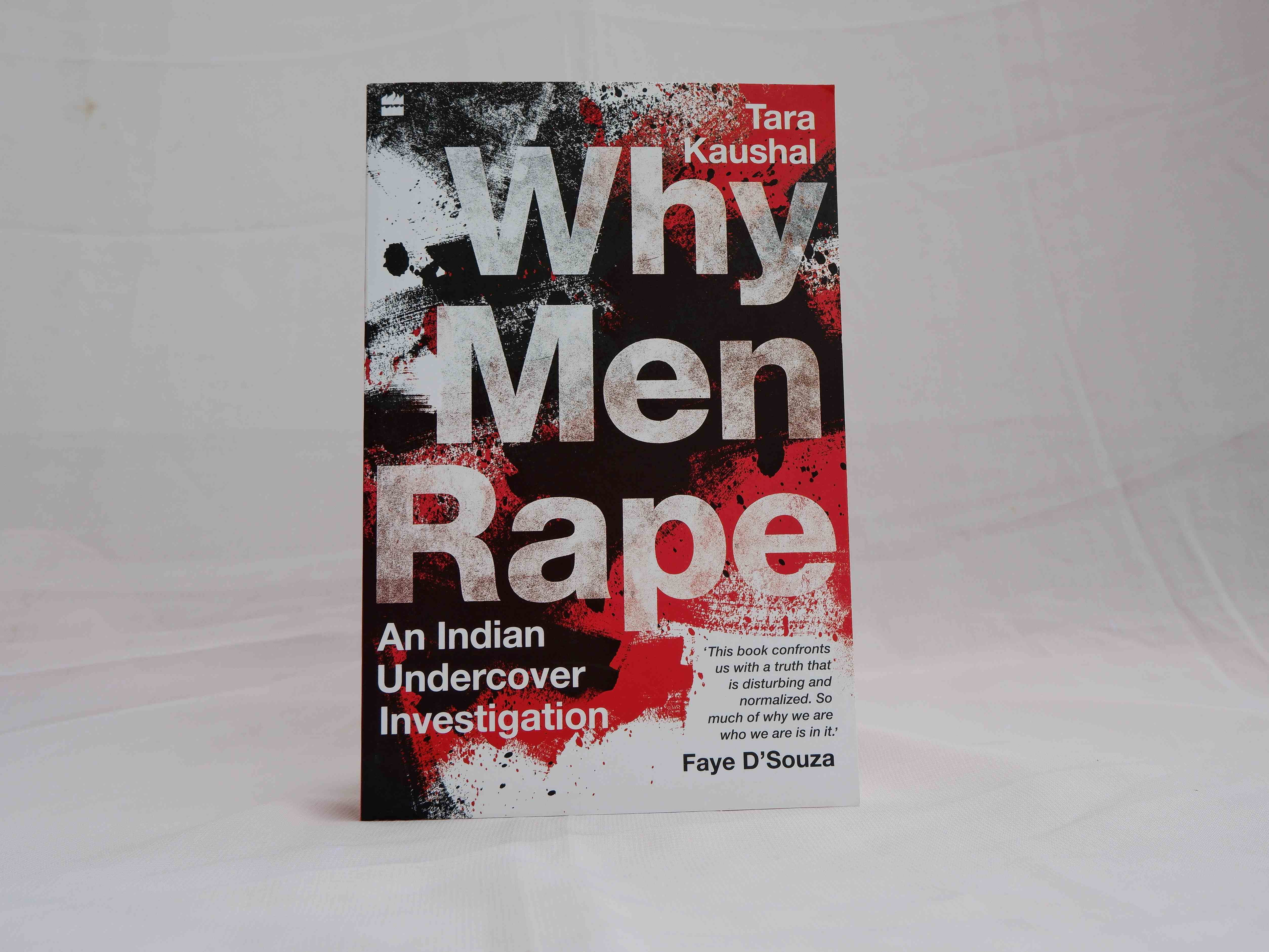Bombay Balchao
by Jane Borges
Publisher: Tranquebar (2019)
We’ve been told not to judge a book by its cover but when the cover is as animated as Jane Borges’ Bombay Balchao, I dare say we could exercise some leniency in that regard! Indeed, the novel’s exterior with its splashes of colour and glimpses of character, creates the perfect prelude to a poignant, funny and moving portrait of narratives set in the charm of old world Bombay and the quirky Catholic inhabitants of Cavel who form the core of the Goan-Mangalorean community in the city of dreams. Borges, through the eyes of the Coutinhos, De Cunhas , Gomes, Castros, Lawrences and many others brings this heritage neighbourhood alive while giving us an entertaining and emotional peek into their realities and the loves and losses that define them. Peppered with significant moments in their cultural history, the author weaves in incidents that are interesting and relevant in the social fabric of Bombay and its suburbs.
Borges describes her novel as a “tangled tale of ordinary lives” and the apartments of Bosco and Lobo Manor are testament to this. There’s Michael Coutinho, loyal, kind and empathetic to a fault, yet not assertive enough to counter his losses or take control of who or what he loves or believes in. There’s his fickle and selfish sister Annette, a dangerous yo-yoer of human emotions who, as fate and irony would have it, receives her share back with interest through her tumultuous relationships with 2 diametrically opposite men, Joe Castro and Benji De Cunha. There’s courageous Tresa Lawrence who takes on the community’s narrow minded biases by fending for herself and her family in unorthodox fashion after the untimely death of her firefighter husband. Mario, her son, is a genius and a social misfit whose stagnant life is resurrected by the power of crosswords. There’s fiesty Ellena Gomes who shares a complicated history with Michael and exerts her authority over her neighbours in thought and deed while Merlyn Coutinho, Michael’s wife hides her inadequacies behind a cloak of blind faith. There’s Father Augustine, the religious “godly” figure of the community who grapples with the ignominy of his own truth and lies. The writer stitches these characters and their eccentricities together in a series of engaging and contemplative sketches that give us an insider’s peek at life within these intertwined communities.
Borges paints a picture of multitude in her grand canvas and presents a landscape of not one but many central characters who evolve, decline and progress over 6 decades. Working with a non-linear style of narration, she makes her readers hop back and forth with her through the varying story arcs of her protagonists. There is almost an episodic feel to her writing that keeps us hooked, baited and eager to unravel the next layer. Good expression does not necessarily entail vocabulary that sits heavily on the pages and Borges scores with her breezy prose that is erudite without veering towards incomprehension. Through her facile penmanship, she allows her characters to leap off the pages and into our lives. Bosco and Lobo mansions feel cosy and claustrophobic all at once while their inhabitants could easily be slices of our own personalities, people we encounter and the myriad experiences that shape us. In presenting her readers with these identifiable anecdotes, the author delves deep into her own culture and heritage with topical images and descriptions of food, attire and the way of life. I found myself googling images of Pao, Recheado, Balchao, Sorpotel and many more culinary delights along with other indigenous intricacies of the Konkan lifestyle that give the novel its aesthetic and authentic centre.
There’s something about art imitating life that always touches a chord. Borges organises her narratives into intriguing chapters laying out honest and relevant insights into human behaviour that are hilarious and hard hitting all at once. “The Exorcism of Michael Coutinho” is a delightful and thought provoking section about the lure and power of superstitious beliefs that serve as temporary deterrents to our fear of facing the truth and the deep rooted resentments we harbour. Written around a chikku tree, it is one of the most entertaining and perceptive segments of the book. “The Water Fiasco” is another rib tickling page turner that highlights the all too familiar travails of water sharing and distribution especially within a crowded cluster of apartments in a metropolis. This one made me reminisce about very similar situations that I have been witness to and prompted a good laugh in the process! Then there is the infinitely charming and emotionally gut wrenching series of letters between Michael and Ellena titled “Dearest Butterfly, with Love”, that will elicit smiles and giggles while leaving us mushy and misty eyed. Through this beautifully written section, Borges presents the whole gamut of the relationship complexities between these two characters. Amidst their recriminations and confessions, we are privy to an innocent love that never took flight, misconceptions that blotted their every step forward fanning the flames of hatred and the acute loneliness and personal loss that finally urges them to shed their petty prejudices and acknowledge their worth to and for each other.
Borges culminates her novel with a beautiful extended metaphor of Balchao, the eponymous spicy and fiery pickle which is a staple of the Goan Mangalorean palette. As Ellena (by now my favourite character of the novel) conscientiously readies the prawns for the dish in a marinade of turmeric and salt, she remembers her mother’s words about the significance of this process. “The salt and the haldi will let the fish heal. It needs to heal, otherwise, eating it won’t make you happy. How can you enjoy something that still holds a grudge against you for having killed it?”. As she continues her loving preparation of the delicacy with a generous dose of oil, she recollects another gem. “Why do you worry about the oil? Pickles are anyway supposed to be relished in small portions. Life is like that, my baby. The best part cannot be enjoyed whole, or it will become too much for you to digest”. This in essence is the epiphany that signifies everything Bombay Balchao represents. Life can be cruel, unfair and captious. It can also be inspiring, enlightening and generous. Why not then settle for a compromise by embracing the good parts, letting go of the bad and making the most of everything in between?
There’s a lot to love about Jane Borges’ Bombay Balchao. It entertains wholesomely. It is light without being trivial. It is deep without weighing us down. It is thoughtful without condescension. Above all, it appeals to all types of readers while still staying true to its nucleus. And that, for me personally, is what a work of fiction should aim to achieve.








RELATED ARTICLESMORE FROM AUTHOR
Swallowing the Sun
Daiva: Discovering the Extraordinary World of Spirit Worship
The Book Of Everlasting Things